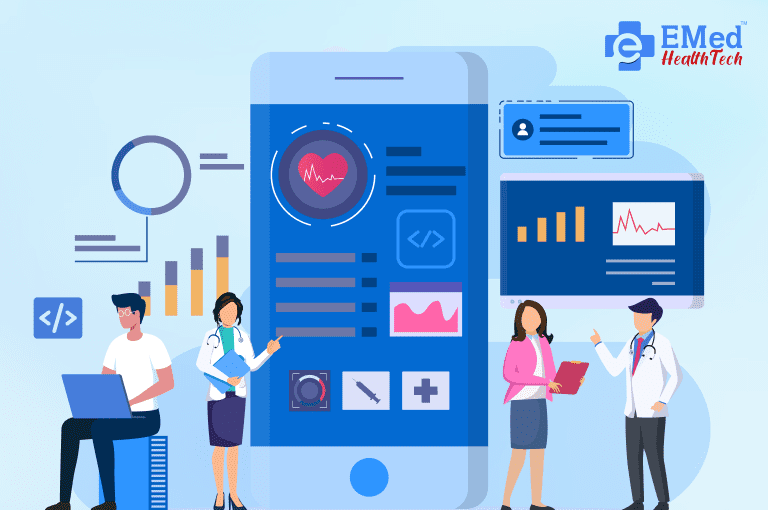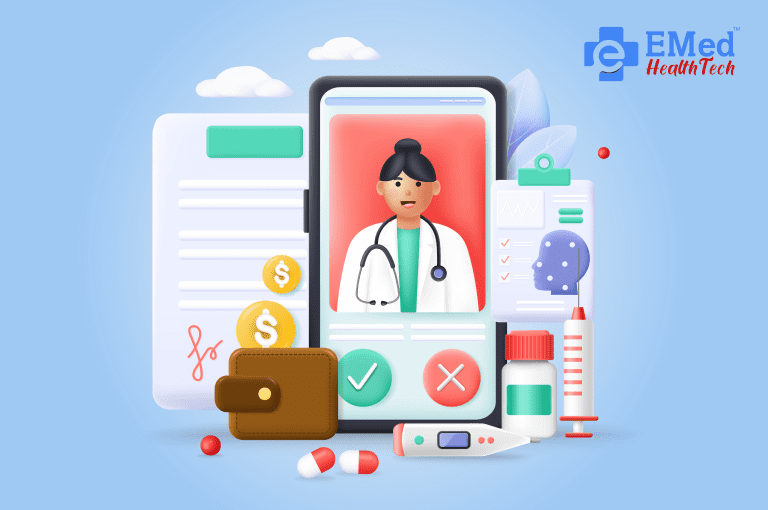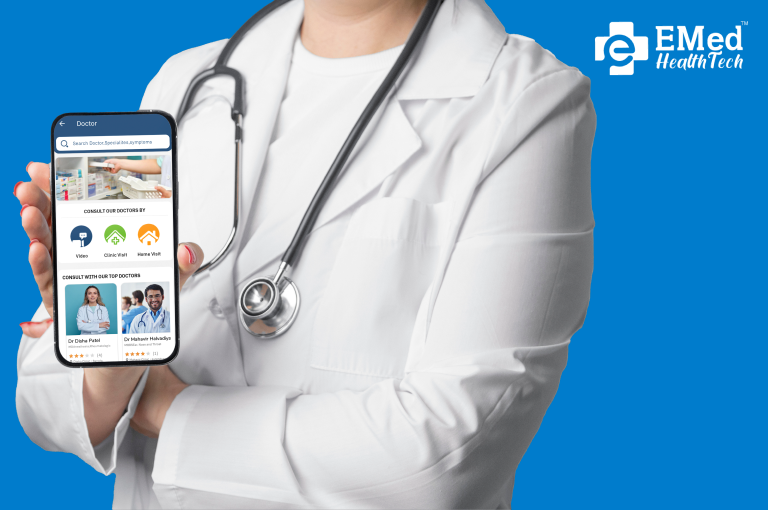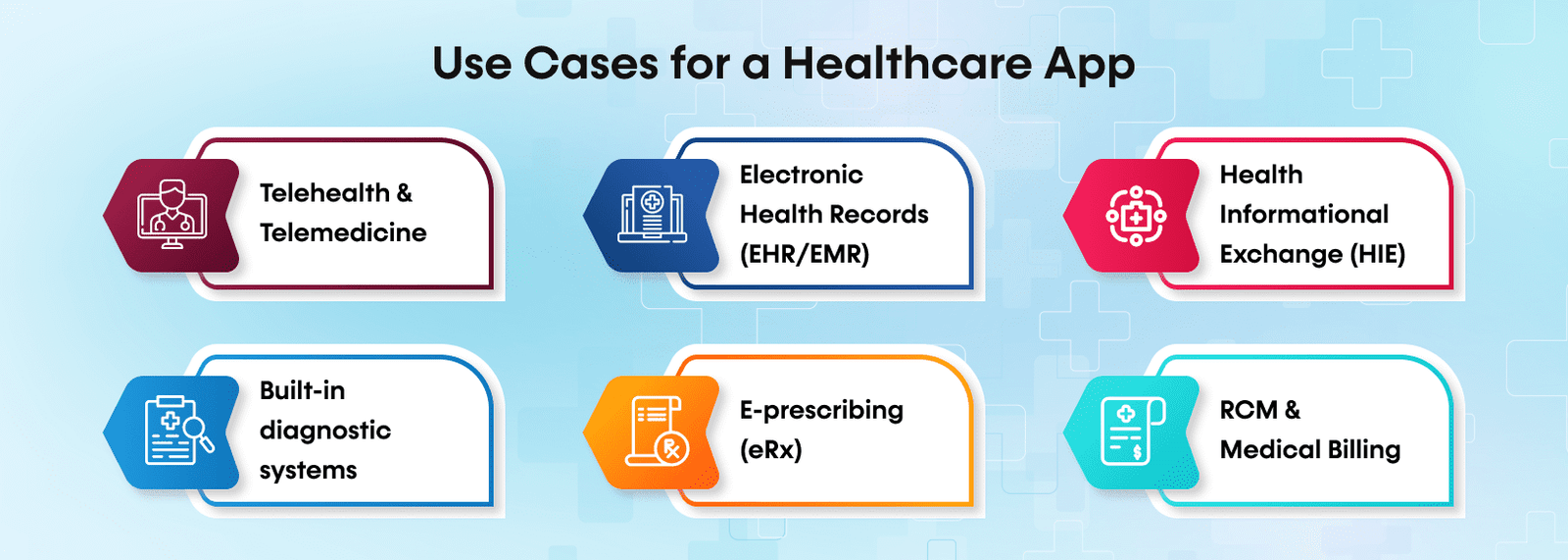A healthcare app has become a crucial part of a healthcare delivery system. Everyone from doctors, hospitals, pharmacies, and even patients rely on such apps to get better access and service.
If you want to build one for your business, there are a lot of things to consider. But the most important among them is deciding on an app development company. There are hundreds, if not thousands, of healthcare app development services. How can you pick the right one?
This guide will walk you through the process of choosing the right healthcare software development partner. But first, let’s look at some hurdles in the way of app development that the right partner can help you solve.
Challenges in the Healthcare App Development
The idea of an app is exciting. Developing one also brings you the chance to expand your business in new ways. But it is not without challenges. Here are some of the most common issues you could run into while creating a healthcare app.
Issues on Privacy:
93% of healthcare facilities face a data breach in the last three years. Protecting patient information is a sensitive issue. You could be met with issues about privacy in your app development journey.
Clinical Verification:
The data provided in such an app should be accurate. There is no room for error where people’s lives are involved. The app you create could undergo several rounds of verification. When data provided in healthcare is accurate, there is a higher chance of better outcomes.
User-friendliness:
The app is meant to be used by regular people. It should therefore have a very easy-to-use interface. If your app is not user-friendly, there is a 90% chance it will be deleted. It takes a good development team to create an app that is simple to use yet has everything that meets your business objectives.
Cost:
Creating a custom app is not as easy on the pocket. There is a high chance you will be met with a heavy bill. With the help of an experienced custom healthcare app development company, you can cut down unnecessary expenses and choose where you need to spend. Please find more details on what is the cost of developing a mobile app for healthcare.
Signs of a Good Healthcare App Development Company
The number of app development companies is increasing day by day. How to tell the good ones from the not-so-good ones? Please find the comprehensive guide on hiring a healthcare software development company. Here are some signs to watch out for.
Past Experience
If there is one factor you should keep while choosing a development company, it is experience. They will better understand the security, legal and technical issues of developing an app. Therefore, no matter how exciting an app developer offers, your decision should be guided by their experience.
Portfolio Strength
By examining the provider’s portfolio, you can measure their capabilities and proposed solutions through their previous healthcare projects. You can assess whether they have the necessary skills to handle your app’s specific requirements.
Testimonials and Reviews
Insights from past collaborators are very important. Look for testimonials on their website. This will give you more reason to consider whether they are trustworthy.
Professionalism and Transparency
Assess how the company handles communication. A company should have a high level of transparency throughout the process. They should be honest about their expertise, availability, and project management ability.
Shared Values
Ensure that the provider’s values align with yours and your company’s. Shared values create a strong foundation for good collaboration. A value-driven company is better equipped to handle the challenges of a project.
Questions to Ask a Potential Healthcare App Development Partner
-
Since how many years do you provide healthcare app development services?
If there is one question that can give you a lot of information at once, it is this. The answer should be a strong number with a portfolio to support their claim. Their years and previous experiences give you an idea of what to expect from them.
-
How qualified are your healthcare app developers?
Ultimately, your product is going to be handled by them. It would be a blunder not to ask this. Every development team should have highly skilled and certified developers. Certifications such as Registered Health Information Technician (RHIT), Certified Professional Coder (CPC®), and Registered Health Information Administrator (RHIA®) are highly impressive credentials to consider.
-
How have your previous clients reviewed you?
Reviews and feedback can guide you through a lot of information when making a decision. Previous customers will have left behind comments that accurately describe the service. If they are mostly good, then you are good to go. Keep an eye out for the negative comments too.
-
Will the team submit the health app to the app stores?
The app stores are the best platform for your app to take off. It is authentic and credible. But getting it to be there has some challenges involved. But it should be easy for a development team. The team should be willing to do it for you so that your app gets maximum coverage.
-
Do you ensure proper paperwork?
It is easy to get tricked in the digital world. Make sure you sign appropriate contracts before you engage with them. It also builds a level of trust. The team should be willing to sign contracts and do apt paperwork before beginning work.
Mistakes to Avoid When Choosing a Development Firm
When choosing a healthcare app development firm, it is not just numbers and figures that matter. There are several pitfalls you should avoid. Here are some of the most common ones.
Not Choosing a Compatible Team
When you choose a development team, you are looking for a team of real people. You could lose sight of the human factor in the mix of technical things. Make sure to assess how compatible you are as a team. Make sure there is a human connection.
Going Just by the Cost
A light price tag is a killer offer. Sometimes it can also be a trap. Don’t fall for the lowest service. Choose a company based on its skills, experience, values, and honesty. All of these should weigh alongside the cost.
Not Opting for Maintenance and Support
An app might need a lot of maintenance work after it has been launched. The relationship with the development team doesn’t end with the launch. Pick a team that offers post-launch maintenance and support. After all, your business depends on the quality of the app.
Not looking for Legal and Compliance Expertise
Your app can be in hot soup if it does not comply with the laws and regulations. There are many regulations in place for apps. The development team should have thorough expertise and experience in handling those areas.
The Best Healthcare App Benefits
Custom app development offers many benefits for doctors and patients. Let us go over a few:
Benefits for Doctors
- Faster Decision Making: It streamlines processes, enabling doctors to make quicker decisions and allocate more time to patients.
- Accurate Diagnosing: Improved data analysis leads to better treatment plans and timely healthcare delivery. With it comes better patient outcomes.
- Less Stress and Burnout: By automating mundane tasks and reducing paperwork, doctors can focus on what’s important and get more time for themselves as well.
- Improved Communication between Professionals: Doctors can communicate with each other regardless of location.
- Better Hospital and Equipment Management: IoT technology allows real-time tracking of medical equipment. It can lead to better usage and improve overall hospital management.
- Reduced Cost of Healthcare Provision: All other benefits of healthcare apps contribute to lowering the cost of healthcare services.
Benefits for Patients
- Higher Quality Care: Patients receive personalized health plans. It is tailored to their specific conditions.
- On-Demand Accessible Care: Healthcare apps offer faster and more convenient access to services. This includes medication delivery and remote consultations.
- Better Control Over Health Data: Patients can export and share their medical records with other hospitals. It results in better data management and continuity of care.
- Secure Payments: In-app payments with credit cards are available. It adds to the convenience and security of medical transactions.
- Engagement: Healthcare apps empower patients to take an active role in their healthcare journey.
Key Takeaways
Custom healthcare app development is a necessity in modern times. Hospitals, clinics, and even private practices are turning to it to stay ahead and create better patient outcomes and experiences. Building a good healthcare app starts with the right healthcare app development company. We hope this guide helps you understand the process of choosing one, what to look for, and what to expect along the way.
At EMed HealthTech, we’re proud to be a healthcare app development company that ticks off these boxes. Our team actively provides healthcare facilities with the latest technology.
We have partnered with many promising healthcare businesses and brought their app ideas to life. We can do the same for you.
Want to learn more about our healthcare mobile app development services? Get in touch with us today!


















